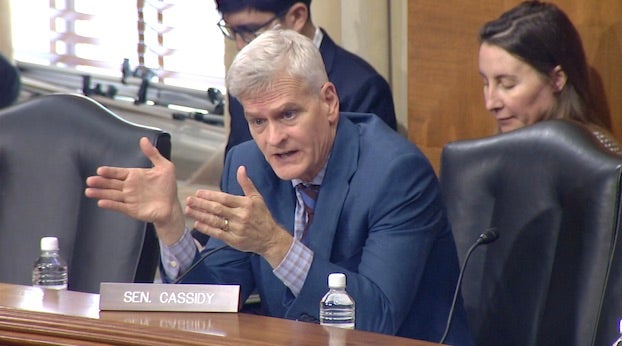Jim Beam column:Major election change in ’71
Published 8:09 am Thursday, December 9, 2021

- Louisiana legislators in 1971 had to draw new election lines for single-member districts. Here is how it happened.MetroCreativeGraphics
The Legislature will be redrawing election lines early next year, and Republicans are expected to try and protect and even increase their overwhelming control of the state’s lawmaking process.
Party membership wasn’t a big thing 50 years ago, but legislators in 1971 were also determined to hold on to their seats any way they could. Their first goal was to keep reapportionment from taking place at their fiscal session that year.
The U.S. Supreme Court in 1964 ruled that state legislatures needed to have representation in both houses that was based on districts containing roughly equal populations (single-member districts). Redistricting had to take place after each federal census, but many states neglected to do it for decades.
Trending
Rep. Carl Bauer of Franklin chaired a committee trying to get it done in Louisiana in 1971, but the first vote to do it failed. The opposition came from New Orleans that would lose four legislative seats if new lines were redrawn.
Once Bauer succeeded in getting reapportionment on the agenda, it didn’t take long to come up with approval of plans that had been drawn up earlier by his committee.
The Associated Press reported on May 26, 1971, that a bill reapportioning the state House passed the Senate 32-5, and the measure for redistricting the Senate was approved 33-4.
Sen. Adrian Duplantier of New Orleans said, “I am not going to vote for what I consider an exercise in futility. No serious effort was made to come up with single-member districts … As a matter of fact, we don’t have a reapportionment plan in these bills.”
Duplantier was right, and other lawmakers agreed.
Sen. B.B. “Sixty” Rayburn of Bogalusa said, “I’m really not too concerned about what we do here today. What we are doing is giving those federal judges something to make them earn their salaries.”
Trending
As they said, the plans were rejected by the U.S. Justice Department that had automatic review authority granted under the 1965 Voting Rights Act.
U.S. District Judge E. Gordon West then came up with a single-member district plan. A group of 90 legislators showed up in late August to protest the court’s plan and to defend state’s rights.
Lawmakers went to the microphone one-by-one to say that their complaints weren’t personal. They blasted the court’s plan because it pitted incumbent against incumbent and kept them from establishing residency in newly drawn districts.
The state AFL-CIO was first to challenge the plan. It didn’t like the court plan that was drawn up by Ed Steimel, director of the Public Affairs Research Council at the time, because organized labor would lose influence in the Legislature.
Despite the opposition, the 5th U.S. Circuit Court of Appeals in New Orleans modified and approved the plan that Judge West had ordered implemented. That decision cleared the way for the Nov. 6, 1971, first primary election.
Legislators continued to defend their reapportionment plan. However, The AP said it was drawn up so that no incumbent would have to run against another incumbent — thus giving all of the lawmakers a better chance at re-election.
The end result was that some 40 members of the House and 7 senators didn’t seek re-election. That is because some of the incumbents had to run against other incumbents and some districts were eliminated under the court plan.
Louisiana voters for the first time were going to choose their legislators from single-member districts. In the last election before Nov. 6, Calcasieu and Cameron parishes had five state representatives and all of them were elected in one district. Calcasieu, Cameron, and Jeff Davis had elected two senators from one district, and in 1971 those senators ran in two single-member districts.
Although confusing for voters at first, the American Press in an editorial said that single-member districts sharpened the lines of communication and made it easier for legislators to know exactly who they represented.
The U.S. Supreme Court will reject redistricting plans if they discriminate against minority voters, and the Justice Department has sued Texas over its 2021 redistricting plan for that reason. However, while trying to protect minorities, the high court ruled in 2019 that it won’t referee partisan gerrymandering disputes — maps drawn to benefit a political party.
When Louisiana legislators meet next year to redraw the state’s election lines, they will definitely try to strengthen Republican control of the Legislature. But they can’t do it if it discriminates against minority voters.





